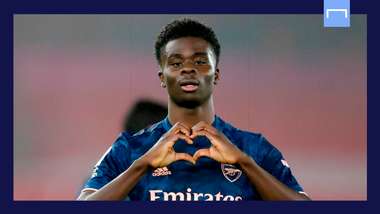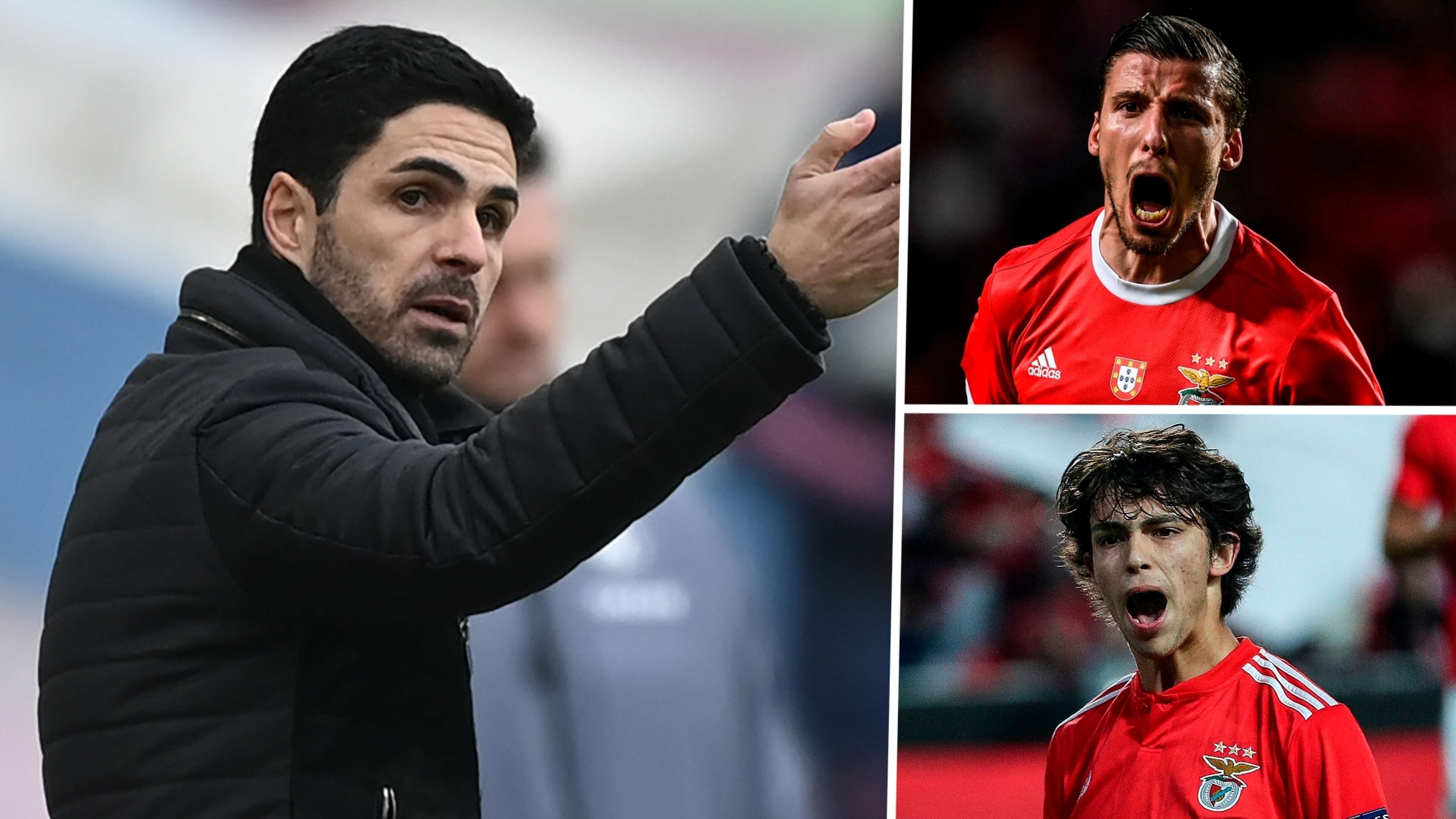There is no club in world football that has perfected the art of selling better than Benfica.
Over the past 10 years, the Portuguese giants have sold 393 players and brought in a fraction short of £1 billion ($1.4bn) in transfer fees. In that time, no team has generated more.
During that period they have amassed a transfer profit of £541m ($750m) and have still managed to lift the Portuguese title in five of the last seven seasons.
The conveyor belt of talent throughout the past decade has been relentless, from academy products such as Joao Felix and Bernando Silva, to carefully scouted additions like Ederson and Angel Di Maria.
Should they have all stayed together, Benfica would have had a potential Champions League-winning side on their hands, but the huge financial clout of clubs outside of Portugal made that prospect all but impossible.
Those in the corridors of power at Estadio da Luz understand that only too well, so the club works to a clear model. Find the best young talent there is, nurture and develop them and, when the time is right, sell them to the highest bidder and start the process all over again.
It is a model that has proved to be a massive success story and one that shows little sign of slowing up any time yet.
“At a certain point it’s not easy to compete with some of the other clubs from Europe,” Benfica legend Nuno Gomes explains during an exclusive interview with Goal ahead of Thursday night’s Europa League clash with Arsenal.
“You have to sell because those big teams, with the finances they have and the offers they make to the players, make it very difficult for Benfica to compete with.
“Also, it’s crucial to the model of Benfica. If you look at some of the players who have left in the past years, it’s true that you could have a team that maybe would have been fighting for the Champions League.
“But the fans I think understand the situation. Portuguese teams will always have to sell. It always comes to a point when you can’t refuse certain offers.”

Gomes had two successful spells with Benfica as a player, scoring more than 100 goals while helping them to two league titles along the way
After retiring he spent three years working as general manger of the club’s highly-respected academy from 2015-2018, so he knows only too well the model that has been put in place to ensure Benfica continue to compete and maintain its position as Portugal’s most successful club.
“When the academy was built, the main goal was to have excellent conditions in order to develop players to feed the first-team," he says.
“But of course it is not enough to have seven or eight pitches with very good infrastructure if you don’t have veery good recruitment resources also. So Benfica has improved a lot in its recruitment skills and scouting department.
“They start a model to find talent in early ages and then have very good coaches in order to develop those talents and give them conditions to grow and make it to the first team.
“So it’s a combination between good coaches, good recruitment and scouting and all the people that work within the academy that treat the young players as their own family.”
Teams across Europe are now benefitting from the success story that is the ‘Benfica Campus’, the club’s state of the art youth training centre that received the Globe Soccer Award of Best Academy of the Year in 2015 and 2019.
Manchester City currently have Bernado Silva, Ruben Dias and Joao Cancelo leading their charge towards another Premier League title, while Joao Felix – whom Atletico Madrid signed for £113m ($157) in 2019 – has scored nine goals in 25 appearances for the Liga leaders this season.
There is Victor Lindelof at Manchester United, Goncalo Guedes at Valencia, Danilo Pereira at Paris Saint-Germain and Renato Sanches, who is now impressing for Lille having previously spent time at Bayern Munich.
“Benfica scout for talent worldwide, but of course the main principal is home grown because you can’t have players from abroad until they turn 16,” said Gomes.
“So the main focus is in Portugal and in the early ages. Players of seven, eight and nine who can develop and eventually make it to the first-team.”
There are some similarities between Benfica and Arsenal, especially when it comes to the focus and investment that has gone into the club’s academies during the past decade.

Just like their opponents on Thursday night, Arsenal have committed over £50m ($69m) during the past decade in improving the facilities at their Hale End academy and the club are now seeing the benefit of that, with Bukayo Saka and Emile Smith Rowe starring in the first-team under Mikel Arteta on a weekly basis.
But while Benfica have also excelled in selling and generating profit in recent years, Arsenal have failed miserably.
During the past decade the Gunners have amassed just £385m ($533m) in transfer sales, while spending £810m ($1.1bn) in the process. When you are a club which operates to a self sustainable model, that is far from ideal - especially without Champions League finances to rely on.
Arsenal can learn a lot from Benfica when it comes to selling at the right time. It is an area where the Gunners have effectively poured money down the drain in recent years.
Since 2012, Alexis Sanchez, Mesut Ozil, Sokratis, Santi Cazorla and Shkodran Mustafi were signed for more than £140m ($194m), yet all left without Arsenal receiving a penny – although Henrikh Mkhitaryan did at least arrive as part of the swap deal that took Sanchez to Manchester United.
Wojciech Szczesny, a fully-established international, was sold to Juventus for just £10m ($13.9m) at the age of 27, while a series of events saw Arsenal lose the immensely talented Serge Gnabry for just £5m ($6.9m).
The highest transfer fee Arsenal have ever received for a player was the £35m ($48.5m) Liverpool spent to take Alex Oxlade-Chamberlain to Anfield in 2017.
Alex Iwobi’s move to Everton – which could eventually bring Arsenal £34m ($47.1m) if add-ons are met – was perhaps a sign that things are improving in north London, with the fee the largest the Gunners have amassed from a player they have developed from Hale End.
As Benfica have shown, money brought in from selling academy products can be hugely important, and it will be interesting to see what sort of figures Arsenal can secure in the summer should they decide to part ways with Ainsley Maitland-Niles, Joe Willock and Reiss Nelson.
With finances extremely limited due to the ongoing coronavirus pandemic, money received for players deemed surplus to requirements will be key to the transfer budget that is eventually handed to Mikel Arteta and technical director Edu at the end of the season.

“It’s crucial for a team to sell well in order to afford to buy well,” says Gomes. “Of course, Benfica fans would love to have a team built from the academy that is full of Portuguese players who were made in the club.
“I can talk as a fan also and I would love to see some of those players spending more years at the club before they leave.
“But there is always a point when you have to sell and when that time comes, you have to sell well.”
He adds: “At Benfica the main target is to have young talent and in Portugal it’s maybe easier for a 17 or 18-year-old to play than it is in the Premier League at a club like Arsenal.
“The Premier League is much more competitive in terms of big teams and in terms of what the club expects from young talent. There is also more pressure on the young player when you play for a club like Arsenal in the Premier League.
“I remember when Arsenal was known because of the good scouting and recruitment that they had to sign young talent. Now I think they are working on that also and at the moment they have some good talent coming through again.”
Arsenal and Benfica go into Thursday night’s Europa League tie having both endured underwhelming seasons so far in their domestic competitions.
With new coaches at the helm, it has been a time of transition for both amid the backdrop of a campaign like no other due to the upheaval caused by the coronavirus pandemic.
It is Arteta’s side who will start the tie as favourites, but even if Arsenal do come out on top over the two legs, there are still plenty of lessons they can learn from their Portuguese opponents off the pitch when it comes to doing business in the transfer market.





